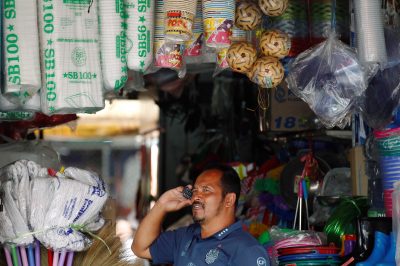Author: Nyi Nyi Kyaw
Tougher times await Myanmar migrant workers in Southeast Asia. Two recent orders issued by Myanmar’s junta State Administration Council (SAC) in September will result in higher costs of moving, living and working abroad for migrant workers and a fall in their disposable income and savings.

The first is the order that Myanmar migrant workers who migrate from September 2023 with the assistance of employment agencies will have to remit at least 25 per cent of their salaries every month. These remittances must be sent through the official channel recognised by the SAC at an exchange rate significantly lower than the market rate.
The World Bank estimated the volume of remittances at US$1.9 billion in 2022, down from US$2 billion in 2021 (the year that followed the coup) and US$2.67 billion in 2020 (the year before the coup). Hundreds of millions of dollars or more are remitted informally and via unknown channels.
This forced remittance order by the SAC may not affect all Myanmar external migrant workers. It is practically impossible to force every one of about four million migrant workers to remit a quarter of their incomes through official channels.
The second order is the amendment of Union Tax Law 2023. It orders Myanmar nationals abroad to pay taxes, in the foreign currency they earn, starting from 1 October 2023. These taxes will be calculated at a flat rate of 2 per cent on their total incomes or at up to 25 per cent of their chargeable incomes (incomes after deducting tax exemptions and tax reliefs) — whichever is lower.
These forced taxes effectively amount to double taxation for Myanmar migrants who also pay income taxes where they work. This order will affect all Myanmar migrant workers, as every national abroad must show proof of tax payments or pay a lump-sum income tax when they renew their passports, which are only valid for five years. The same requirement has to be fulfilled by those who renew their passports in Myanmar.
The September orders will generate a substantial amount of foreign currency for the SAC. Though not explicitly stated, they have two targets. First, the military junta wants to discipline and punish external Myanmar migrants who are seen as major financial supporters of the resistance against the military regime.
Second, the SAC needs additional funds to support its war machine against the resistance. UN Special Rapporteur on the situation of human rights in Myanmar, Tom Andrews, reported that the junta has imported war materials worth at least US$1 billion since the coup. Since 2021, the junta has become increasingly cash-strapped due to international economic sanctions and the mass boycott of goods and services produced by military-affiliated enterprises in Myanmar.
Prior to these two new orders, Myanmar migrant workers in Thailand, Malaysia and Singapore were already subject to a growing set of securitised regulations issued by the SAC. These regulations included suspensions and delays in renewing and obtaining Myanmar passports and new migration documentation requirements introduced after the coup, such as the Overseas Worker Identification Card. As a result of these new regulations and an increase in corruption after the coup, brokerage services have thrived in both within Myanmar and in Thailand and Malaysia, resulting in additional costs for Myanmar migrant workers.
The case of Myanmar migrant workers in Thailand is particularly important. Thailand is home to at least 2 million Myanmar workers, not including several hundreds of thousands of workers who have entered and stayed irregularly. Only 350,000 of them are employed through the official Memorandum of Understanding between Myanmar and Thailand.
Faced with forced remittances and income taxes, many Myanmar workers, who might have otherwise regularised their status in Thailand and obtained documentation from Myanmar immigration and labour authorities, may choose the irregular, undocumented pathway. Aspiring migrants who are still in Myanmar and would also have chosen the official pathway might now consider irregular migration. The porous border between the two countries facilitates irregular migration.
Despite the unavoidable deduction from their incomes abroad, hundreds of thousands of people remain driven to emigrate from Myanmar. The situation at home seems increasingly grim, with no visible end to the unprecedented domestic political conflict and humanitarian crisis, as well as their severe impacts on the country’s economic situation and labour market.
While there is some irregular migration from Myanmar to Malaysia, it is not as big as in Thailand, and there is no irregular migration from Myanmar to Singapore. Documented workers, such as those in Singapore, cannot simply opt for the undocumented pathway like their counterparts in Thailand and Malaysia. They have already faced or will face the SAC rules and regulations.
Brokerage services will further thrive because many Myanmar migrant workers will have to seek passport, embassy and consulate brokers, resulting in higher fees. A significant portion of incomes and savings of Myanmar migrant workers will be lost from forced remittances, income taxes and increasing brokerage fees.